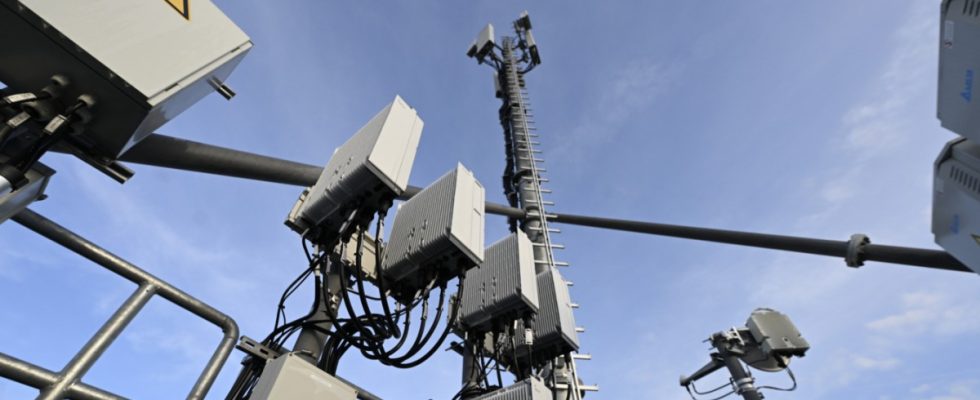Was that absolutely necessary, a fourth mobile network? If it had been up to the three established mobile operators in Germany, Telekom, Telefónica and Vodafone, the case would have been clear – and the answer would have been “no”. But would any of the three go so far as to sabotage the launch of the new one? This is exactly what 1&1 accuses of the competition from Vodafone and lodged a complaint with the Federal Cartel Office in February. At the end of last week, the authority announced that it would investigate the matter.
But how could Vodafone sabotage a competitor’s business? 1&1 claims that the Vodafone radio tower subsidiary Vantage Towers is slowing down the expansion of the 5G network for 1&1 at the request of the parent company. 1&1 turned to Vantage Towers because you can’t build all the antenna sites yourself, there are thousands of them. By the end of 2022, 1&1 should have had 1000 units in operation. But it was only a measly five. The company from Montabaur in the Westerwald now has around a hundred 5G locations – far too few.
This is not only bad for business, it also violates the requirements of the Federal Network Agency. In 2019, 1&1 had auctioned radio frequencies for more than one billion euros. In the industry it was said at the time that Ralph Dommermuth, head not only of 1&1 but also of the parent company United Internet, had “a master plan” and that he knew what he was doing. But is that still true? This is because there are also tough conditions associated with the acquisition of the radio frequencies. Frequencies are scarce, and the Federal Network Agency wants to prevent them from lying idle.
Ralph Dommermuth’s plans with 1&1 have not yet worked out as hoped.
(Photo: Sascha Ditscher/imago)
The Federal Cartel Office has since confirmed that it is examining whether Vantage Towers, urged to do so by its competitor Vodafone, has deliberately slowed down the expansion of 5G locations for 1&1. However, this test can also backfire. Namely, when it turns out that Vodafone and Vantage Towers are not to blame for the delay. It could then be confirmed what Vodafone in turn accuses 1&1 of: that the new competitor started planning the 5G sites far too late and is therefore now behind schedule. For 1&1, however, it is a success that the Federal Cartel Office is examining the matter at all. The complaint from 1&1 was already received in February, that official abuse proceedings are now being opened, is a next step – the result is still open.
1&1 could get a fine of 50 million euros
Vantage Towers and Vodafone again rejected the allegation of obstruction. “As a neutral and independent host, we offer all our customers open access to our passive infrastructure,” says a Vantage spokeswoman. “The reasons for any delays will be explained in detail”. That will also be necessary, because 1&1 is threatened with a fine of almost 50 million euros because they have not met the requirements of the Federal Network Agency. 1&1 would demand that from Vodafone if Vodafone/Vantage were actually to blame for the delay.
However, 1&1 should not quarrel too much with Vodafone either, without its subsidiary Vantage Towers things would look completely bleak with the 5G expansion. Although Telekom and its radio tower division would still remain, there was no agreement on the price even during the preliminary negotiations. 1&1 limits the 5G expansion primarily to the cities, wherever the company does not have its own antenna locations, it uses the infrastructure of the competitor Telefónica (brand: O2) for a fee. 1&1 only gets access to the 4G network, also known as LTE. If the own expansion does not progress, 1&1 has to pay more to Telefónica. Over time, things could get financially tight for the fourth network operator. In any case, the shares of United Internet, the 1&1 parent company, are only worth a quarter of the high of 2018.

